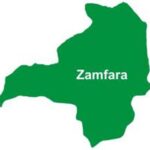Well, there is a difference between a doctorate degree and a doctor of philosophy (often abbreviated as Ph.D. or D. Phil) degree. And the difference is this: the term “doctorate degree” is an umbrella termfor the highest academic laurel that universities confer on people who satisfy the requirement for it. In that sense, a Ph.D. is also a doctorate degree.
But there are other doctorate degrees that are not Ph.D. There are, for instance, professional doctorates like Doctor of Medicine (MD), Doctor of Nursing Science (DNS), Doctor of Pharmacy (D. Pharm), etc. that cater to fields in the medical and allied sciences. And then you have industrial professional doctorates likeDoctor of Business Administration (DBA), Doctor of Public Administration (DPA), Doctor of Education (Ed.D. or D.Ed.), etc. that have sprouted in American universities and exported all over the world in the last few years.
The difference between these professional doctorates (which are typically known by their initials) and PhDs is that while PhDs are research-oriented, involve a lot of academic rigor, and require evidence of “original contribution to knowledge,” and take longer to complete, professional doctorates are less academically rigorous and are generallyoriented toward industry rather than academia. Holders of professional doctorates, usually, already work in an establishment and hardly venture to academe upon the completion of their studies.
Now, this is a broad-brush distinction that ignores many subtleties. For instance, while some universities have both Ph.D. degrees in education and Ed.D., (where the PhD is the more prestigious degree), other universities just have the Ed.D., which is equal in prestige and rigor as the Ph.D. Similarly, although the professional doctorate degree is an American invention, wherever it is adopted in other English-speaking countries (such as the UK, Australia, etc.) it tends to be just as rigorous as the Ph.D.
And then there are also, of course, honorary doctorates, which are unearned, which are granted merely to honor people. Typically, they include such degrees as Doctor of Letters (D.Litt.), Doctor of Science (D.SC.), Doctor of Laws (LLD), etc. Note that there is no such thing as an honorary Ph.D. A Ph.D. is always earned; it is never honorary. A widespread error is the Nigerian media and, to be fair, elsewhere is the tendency to refer to honorary doctorate degrees as “honorary Ph.D.” That is wrong. It should properly be called an “honorary doctorate (degree).”
Now, who is entitled to prefix “Dr.” to their names? Does every doctorate degree holder have the right to be called a doctor? Well, it depends on the country. In most Anglophone countries, only medical doctors and people who have earned research and certain professional doctorates can prefix “Dr.” to their names. As I pointed out last week, honorary doctorate degree holders usually don’t address themselves as “Dr.” in most countries.
Another tricky doctorate degree a reader asked me to comment on is the Juris Doctor, also called Doctor of Jurisprudence, or simply .J.D. degree. It is a professional doctorate degree in law, and is the minimum qualification required to practice law in the United States and Canada. While in the British system we spend 5 years (6 years if you add one year of law school) after high school to earn an LLB before qualifying to practice law, Americans and Canadians must first earn a bachelor’s degree, typically in the humanities and the social sciences, before enrolling for the 3-year J.D. degree. That means it takes a minimum of 7 years (4 years for the bachelor’s degree and 3 years for the J.D.) to be a lawyer in the United States and Canada.
Although the J.D. degree is actually older than the Ph.D. degree, holdersof the J.D. don’t prefix “Dr.” to their names. Someone told me of a Nigerian who earned a J.D. from a US law school and insists on being called a “Dr.” because he said the J.D. is a doctorate degree. Well, he is right that the J.D. is a doctorate degree, but he is bucking tradition by calling himself a “Dr.” Americans who invented the degree don’t call J.D. holders “Dr.” Bill Clinton, Barack Obama, Mitt Romney, etc. all have J.D. degrees, but I’ve never heard any one of them being addressed as a “Dr.”
There at least two reasons why holders of the J.D. degree aren’t called “Dr.” The first is that the J.D. is a strictly professional degree that doesn’t require the submission of a thesis or a dissertation at the end (like other professional doctorates do). Second, it isn’t the terminal degree in jurisprudential studies. The highest obtainable degree in the legal field is the Doctor of Juridical Science, also known as Doctor of the Science of Law, or simply of Doctor of Laws, but often abbreviated to J.S.D. or S.J.D. It is equivalent to a Ph.D. because it is a research doctorate that requires the possession of a master’s degree in law (LLM) as a prerequisite for admission and evidence of “original contribution to knowledge” in a dissertation or thesis.
Although holders of J.D. degrees can—and indeed do—teach in US law schools with the same rights and privileges as Ph.D. holders, the US Department of Education and the National Science Foundation do not consider a J.D. as equivalent to a Ph.D.; only the S.J.D. is considered the equal of the Ph.D.
So, you see, while a Ph.D. is a doctorate degree (actually the most popular and most prestigious doctorate degree), not every doctorate degree is a Ph.D.



